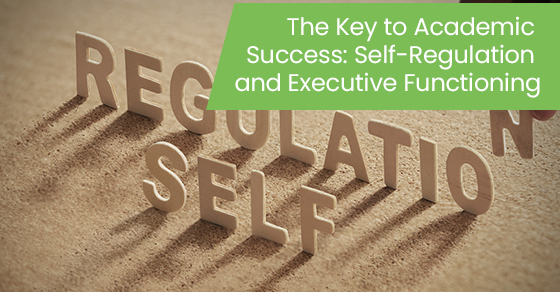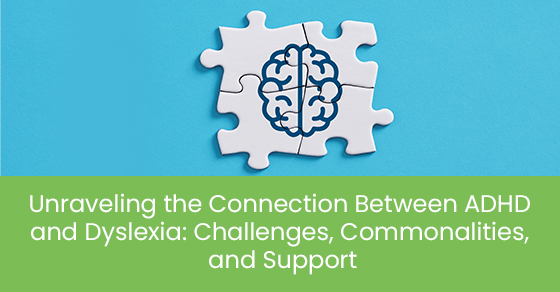It can be frustrating and puzzling to watch your bright, hardworking child struggle to earn the grades you know they deserve. You can see they have the horsepower, but why can’t they find the torque?
The reality is that academic achievement relies on many factors that are unrelated to intelligence or innate talent—access to resources, study skills and strategies, health and well-being, teacher quality and teaching methods, motivation and mindset—but one crucial overlooked factor is self-regulation. The ability to stay focused, manage time, resist distractions, and regulate their emotions plays a crucial role in a student’s capacity to excel. Self-regulation can be challenging for students with attention deficit hyperactivity disorder (ADHD) and weak executive functioning skills, but executive functioning coaching can empower them to better understand and manage their own behaviour, ultimately leading to improved academic performance.
What Is Executive Functioning?
Executive functions are a set of cognitive skills that help us manage and control our thoughts, actions, and emotions to achieve goals and solve problems effectively. They’re the “boss” of the brain, overseeing various mental processes and allowing us to plan, organize, focus, and adapt to different situations. Executive functions involve multiple regions of the brain working together, but they are particularly associated with the prefrontal cortex, which acts as the central hub for executive function control and coordination. The functions include:
Inhibition, which helps us control impulses and resist distractions. It acts as a mental brake that stops you from doing something impulsive or off-task.
Working memory, which lets us hold and manipulate information temporarily. It functions like a notepad where you jot down information you need to use right away.
Cognitive flexibility, which allows us to adapt to new situations and switch between tasks or strategies. Think of it as a mental “gear shift” that helps you adapt your approach when circumstances change.
Planning and organization, which helps us set goals, make a plan, and carry it out step by step. This function is a “mental project manager” that ensures tasks are completed in an orderly fashion.
Problem-solving, which enables us to analyze situations, find solutions, and make decisions. It’s like having a toolbox for tackling challenges.
Time management, which allows us to allocate our time wisely, prioritize tasks, and meet deadlines. It acts as a mental clock that helps you stay on schedule.
Emotional regulation, which helps us manage and control our emotions, preventing them from interfering with our thinking and actions. It’s a sort of mental thermostat that keeps your emotions in check.
Understanding Self-Regulation
Self-regulation is the ability to manage your emotions, thoughts, and behaviours to achieve a specific goal or desired outcome. In an academic context, it involves controlling attention, resisting distractions, and staying on task. Self-regulation is an essential skill for students, as it directly affects their ability to focus, study effectively, complete assignments, and perform well on exams.
Challenges Faced by Students with ADHD and Weak Executive Functioning Skills
Students with ADHD often struggle to sustain attention during tasks. They may find it challenging to filter irrelevant information or resist distractions in the learning environment. This can lead to difficulties in staying engaged with coursework and understanding complex concepts.
Those with weak executive functioning may also have problems with staying organized, prioritizing tasks, meeting deadlines, and maintaining a structured study routine. This can result in missed assignments and poor time utilization and can be exacerbated by lack of impulse control. Students who have trouble staying on track may procrastinate, impulsively check their phones, or engage in other activities that divert their focus away from academic responsibilities.
Because emotional regulation is closely linked to self-regulation, students who cannot manage their emotions effectively may also become overwhelmed by academic stress, anxiety, or frustration, hindering their ability to concentrate and perform at their best.
Academic Consequences of Poor Self-Regulation
The effects of weak self-regulation on academic performance can be profound.
Lowered Academic Achievement: Students who struggle with self-regulation often experience lower grades and decreased overall academic achievement. They may struggle to complete assignments, study effectively, and retain information, leading to a cycle of underperformance.
Reduced Learning Engagement: Difficulty in regulating attention and managing distractions can result in reduced engagement in classroom activities. Students may miss important information and fail to actively participate in discussions or group projects.
Increased Stress and Anxiety: Poor self-regulation can lead to increased stress and anxiety related to academic performance. As deadlines loom and assignments pile up, students may become overwhelmed, making it even more challenging to concentrate and perform well.
Negative Self-Esteem: Repeated academic setbacks linked to poor self-regulation can erode a student’s self-esteem and self-confidence. They may begin to doubt their abilities, which can further hinder their motivation to succeed.
How Executive Functioning Coaching Can Help
Executive functioning coaching is a specialized intervention designed to help students (especially those with ADHD) develop strategies to improve their self-regulation.
At Evoke, our coaches work one-to-one with students to identify their specific challenges and tailor strategies to their unique needs. They can also assist students in setting realistic academic goals and breaking them down into manageable steps. This helps students develop a sense of direction and a structured approach to their studies. Coaches also teach effective time management techniques, helping students learn to allocate their time wisely, prioritize tasks, and create schedules that maximize productivity. Executive functioning coaching emphasizes the development of organizational skills, showing students how to create organized study spaces, keep track of assignments, and plan their academic responsibilities effectively. Coaches also work on emotional regulation, helping students manage stress and anxiety related to their academic responsibilities. By building emotional resilience, students are better equipped to stay focused and motivated.
By prioritizing self-regulation and seeking appropriate guidance and support, students can unlock their full potential and achieve academic success. Contact us to learn more about how an Evoke coach can work with your student to help them understand and address their needs.
Good Reads for Further Insights:
Smart but Scattered: The Revolutionary ‘Executive Skills’ Approach to Helping Kids Reach Their Potential by Peg Dawson and Richard Guare
This book offers practical insights and strategies for parents and educators to support children with executive function challenges. The authors have an additional book, Smart but Scattered Teens, that may also be helpful.
Taking Charge of ADHD: The Complete, Authoritative Guide for Parents by Russell A. Barkley
A comprehensive guide with a wealth of information on ADHD, including strategies for managing executive function difficulties
The ADHD Effect on Marriage: Understand and Rebuild Your Relationship in Six Steps by Melissa Orlov and Edward M. Hallowell
While focused on relationships, this book delves into the impact of ADHD on self-regulation and offers valuable insights for students and parents.



